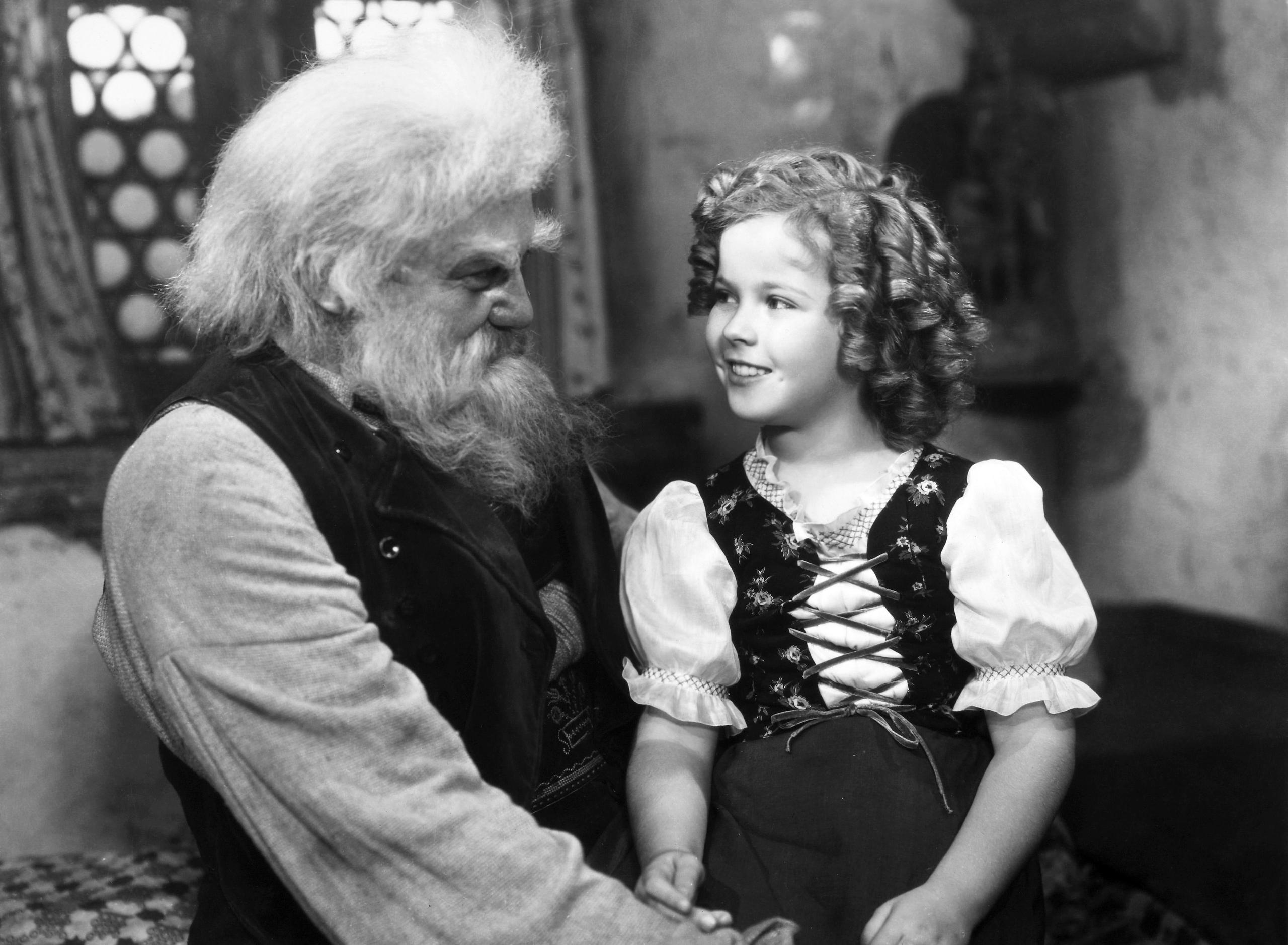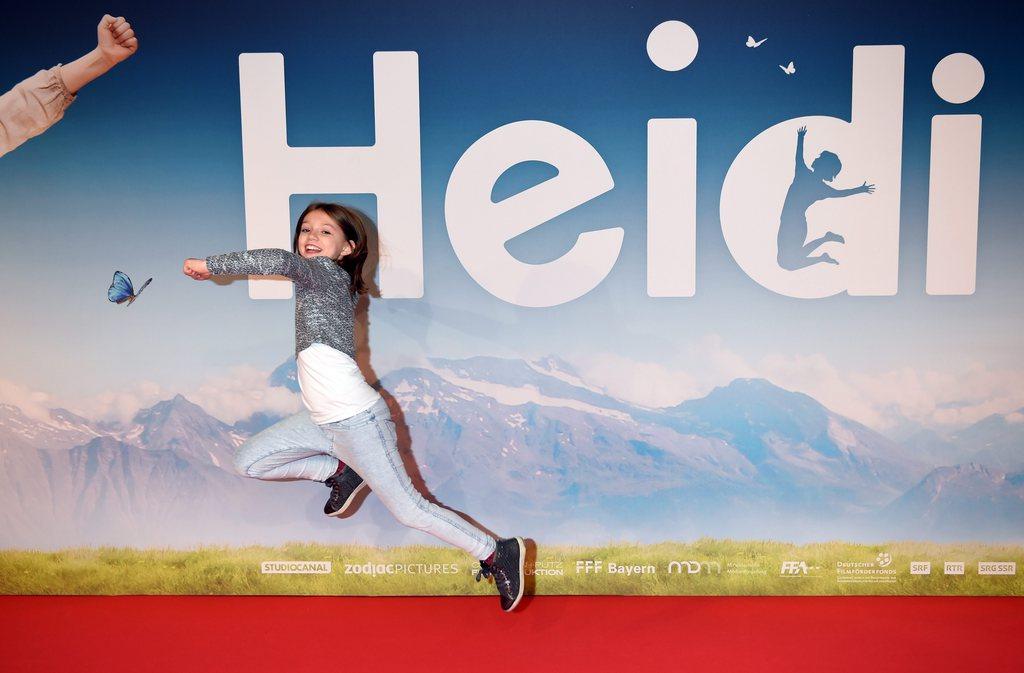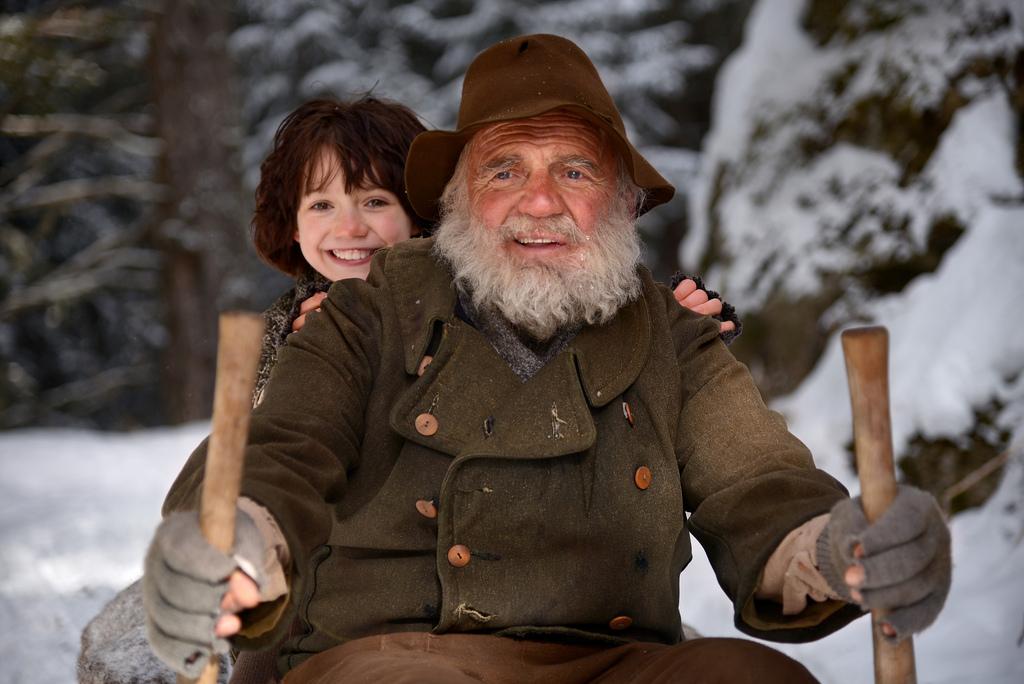How a Swiss children’s tale changed American football

This Sunday millions of Americans will gather round television sets and bowls of jalapeño cheese dip to jump and yell as the Los Angeles Rams and New England Patriots battle it out during the 53rd Super Bowl. No matter who wins, one thing is certain: no one will be forced to watch “Heidi” instead.
If that sounds absurd, don’t laugh, because that’s exactly what happened 50 football seasons ago during one of the most infamous mess-ups in sports broadcasting history. Today we call it the “Heidi Bowl” or the “Heidi Game” and it changed the way Americans watch football while redefining who controls the television networks when it comes to airing the sport.
“The most significant factor to come out of Heidi was, whatever you do, you better not leave a football game,” Val Pinchbeck, a National Football League (NFL) broadcasting vice president told author Ken Rappoport in his book “The Little League that Could.”
The build-up
The year was 1968 and the New York Jets and the Oakland Raiders were locked in a growing rivalry as both teams were on track to mark their winningest seasons ever. Combined, the teams had 10 future Hall of Fame players among their ranks. On November 17, the two franchises would finally face off in a regular-season contest. NBC, one of the United States’ national broadcasters, would air it live, coast to coast. At last fans would know which was the better team.

In the lead-up to the game, though, another highly anticipated event was afoot that legions of non-football fans awaited with great joy. That year, NBC had adapted Heidi, the classic 1880 Swiss story by Johanna Spyri, into a made-for-television movie. It starred Jennifer Edwards, step-daughter of The Sound of Music’s Julie Andrews, in the title role. John Williams, who would later compose classic scores for films like Star Wars, Jaws, and the first Harry Potter films, had written the music. NBC would air Heidi at 7pm New York time on the day of the big game, a full three hours after the Jets-Raiders contest started.
The game proved to be a nail-biter. The teams swapped leads more than half a dozen times. Then, deep in the fourth and final quarter, the New York Jets kicked a 26-yard field goal to earn a three-point lead at 32-29. For the Raiders, a comeback in those final moments seemed unlikely.
“As a Raiders fan, I’ve grown accustomed to great buildups only to be followed by being dropped on my backside with a dumb loss,” says Tony Weeg, a photographer in Maryland who has followed the Raiders for decades. “A great buildup, loads of hope, and then, poof, there goes your season.”
Heidi time
The game was taking longer than expected, and as the clock crept closer to 7pm in New York, nervous Heidi fans began calling the NBC studio switchboard to make sure the film would air on time. Yes, the operators said, the plan was to show the movie as scheduled no matter what. After all, Timex had forked over $700,000 or nearly $5 million (CHF4.97 million) in today’s money to sponsor the Heidi film slot.
NBC executives, however, had a change of heart. With just 65 seconds to go, and with such an intense, exciting game at hand — a game that some fans would say was more important than any Super Bowl — NBC executives made the decision to finish airing the game after all and to delay Heidi by a few minutes. They picked up the phone to call the studio control room but could not get through. Too many Heidi fans were already calling in, jamming up the switchboard.

More
The changing faces of a timeless Swiss icon
And so just after play started anew, with the Jets kicking the football downfield to the Raiders, the NBC studio chief did as he had last been ordered to do earlier and cut the game off. With the push of a button, viewers suddenly saw “Heidi” splashed across their screens in calligraphy font as a horse-drawn carriage rattled down a cobblestone street. The movie had begun.
Outraged, scores of football fans flooded the NBC studios with phone calls. Some say so many people called that the switchboard malfunctioned. What viewers missed was remarkable: The Raiders had mounted a comeback after all with two touchdowns in nine seconds to beat the Jets 43-32. Adding insult to injury, NBC ran a ticker along the bottom of the film announcing the stunning comeback. It happened during the story’s “Clara-wheelchair” scene.

More
Little girl, big screen, global hit
Aftermath
The fallout was intense.
“Heidi Crowded off TV’s Thriller” announced the Albuquerque (New Mexico) Tribune the next day. “Heidi wins over Pro Football,” boomed the Austin (Texas) Daily Herald. “Heidi doesn’t score with football fans,” proclaimed the Jeffersonville (Indiana) Evening News.
“Last night, somebody in the vast reaches of NBC network didn’t get the word,” David Brinkley, an NBC News anchor, announced the next day during a news broadcast on November 18, 1968. “The result was that football fans by the thousands were roused to a cold fury and some probably haven’t cooled down yet.” The network then proceeded to show the last seconds of the game.
Heidi changed football forever. Not long after the Raiders-Jets game, the National Football League tweaked its contracts with the networks to make sure that all games would be shown in their entirety before any regularly scheduled programming. From then on, the NFL, not the networks, would have the upper hand when it came to broadcasting the sport. Meanwhile, NBC installed a dedicated line into the New York control room dubbed the “Heidi phone” to make sure executives could always get through.
As for the Jets, they would exact their revenge and beat the Raiders in a playoff match a few weeks later. The Jets would then go on to win the third Super Bowl, the only time they have ever won it. The Jets quarterback, a Hall of Fame player named Joe Namath, would get the most valuable player award for his effort in the 16-7 win over Baltimore.
More than four decades after the Heidi Bowl, National Public Radio talked to Edwards, who was just ten years old when she appeared as Heidi in that NBC film. She said she later met Namath on an airplane.
“At one point, I leaned over and I said, ‘Do you remember The Heidi Game?’,” Edwards told NPR in 2012. “He looked at me, like, ‘Well, duh!’ and I said, ‘Well, I want to formally introduce myself. I’m Heidi.’”

In compliance with the JTI standards
More: SWI swissinfo.ch certified by the Journalism Trust Initiative











You can find an overview of ongoing debates with our journalists here . Please join us!
If you want to start a conversation about a topic raised in this article or want to report factual errors, email us at english@swissinfo.ch.